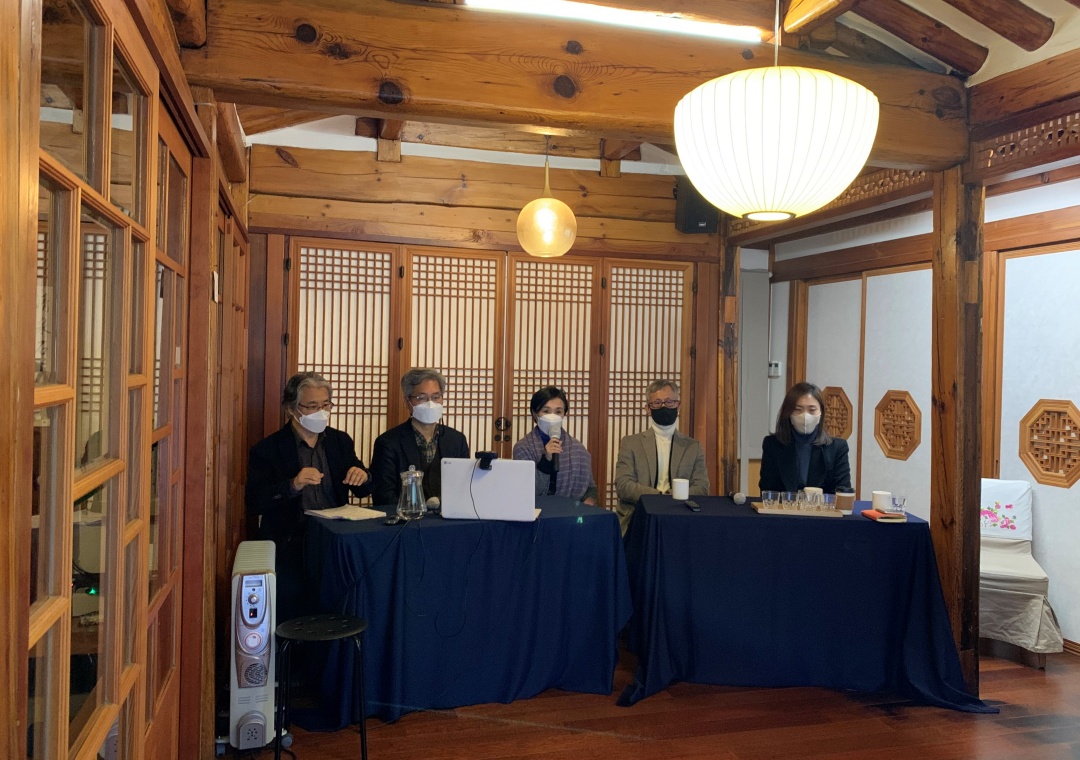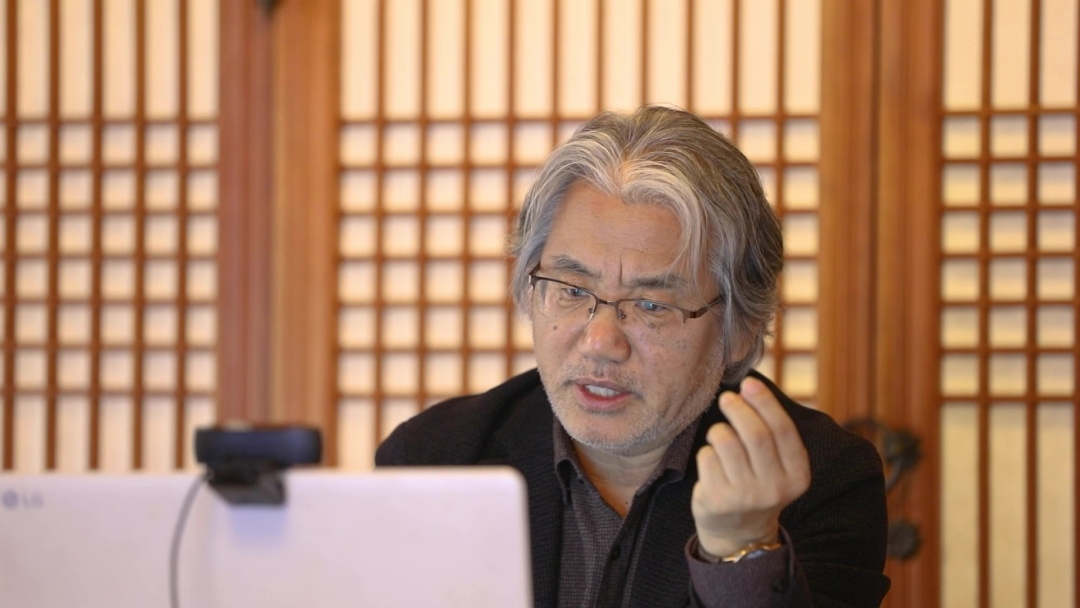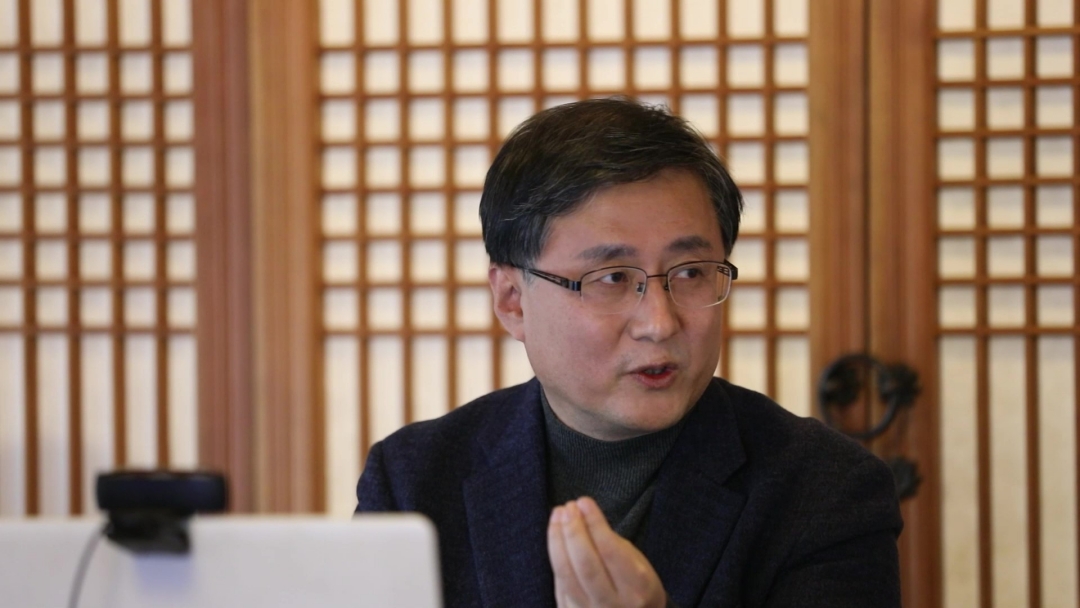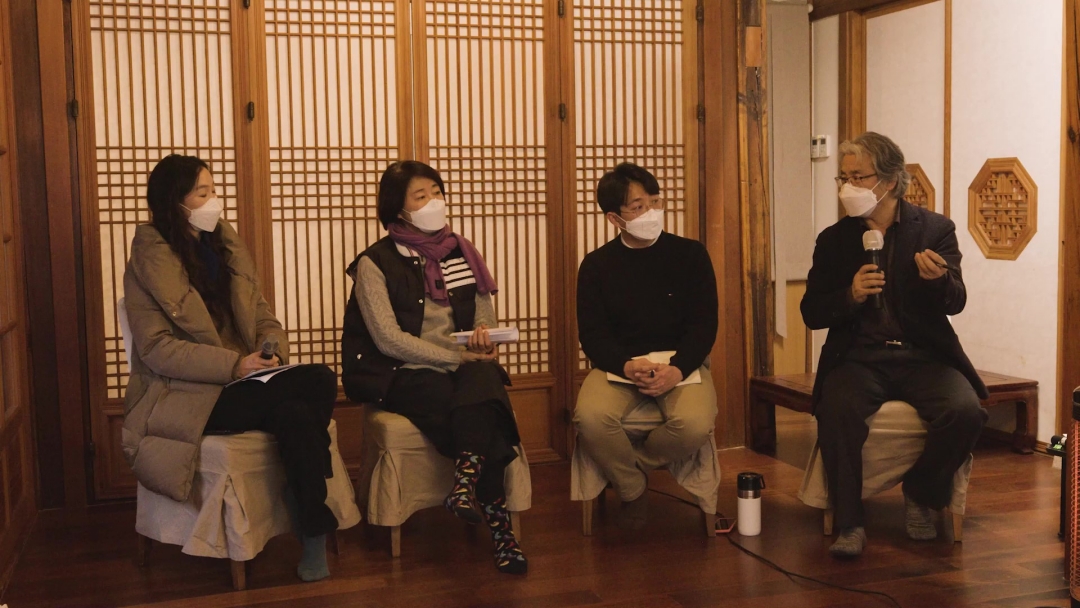- 2022-01-28
- ㆍ
- 612

The world is locked in a
long-term pandemic and is taking a step towards carbon reduction after the
“Glasgow Climate Pact.” People for Earth had a time to connect Earth Jurisprudence
with the topics of Korean society through the 6th Anniversary
Conference 2021. 
Day 1. 〈Beyond Human beings, Life, and Unfolding
Future〉 (December 28, 2021)
The first part of the
conference Beyond Human beings, Life, and Unfolding Future opened with a
keynote lecture by Wang-Bae Kim (Department of Sociology, Yonsei University),
Standing Chairperson of People for Earth. He presented the Zoe-Politics while
explaining the earth jurisprudence in the post-human time.
SungHwan Kim (member of the
National Assembly), who was in charge of the presentation of the 1st
session, looked at the scenarios of 2050 Carbon Neutral Strategy in various
fields.
In the 2nd session,
Hon-Gee Kim (Business leader of Big Data Innovation Sharing University Project)
discussed the topic of “Centric University 4.0” and proposed “Data for Earth”
and the value that can be created by sharing knowledge.
The 3rd session was
moderated by Ziyea Hyun (Dramaturgy). Wang-Bae Kim, KiWon Song (Department of Biochemistry,
Yonsei University), and JeongWon Choi (Master of Public Administration, Yonsei
University) exchanged opinions about the meaning of life through beings beyond
humans.


Day 2.
〈Earth Jurisprudence and Biocracy〉 (January 5, 2022)
The 1st session of
the second part Earth Jurisprudence and Biocracy was moderated by Seonho Choe (Attorney
at law). Taehyun Park (School of Law, Kangwon National University) asked a
question about the necessity for harmony with the Earth under the theme of “Earth
Jurisprudence for the Earth Community in the Anthropocene.”
Dongsuk Oh (Ajou University Law School), introduced the “Rights of Nature” specified in the Constitution of the Republic of Ecuador - “rights to exist and to maintain and regenerate its vital cycles, structure, functions, and evolutionary processes” and emphasized the reinterpretation of our constitution from Ecocentrism.
Jeongho Choi (Senior
Researcher, Ph.D in Law) has summarized the issue of the Punitive Authority of
State in response to the Rights of Nature in Earth Jurisprudence.
Do-gyun Kim (Law School of
Seoul National University) and Attorney Hye-jin Jeong, who participated in the
discussion, exchanged opinions on the current state of Earth Jurisprudence in
Korea, and discussed the solutions to harmonize with the earth.
In the 2nd session,
Byongjin Ahn (Global Academy for Future Civilizations, KyungHee University)
presented political ecology and a new social naturalism from a perspective
beyond human beings.
Researcher Junsoo Kim (Center
for Anthropocene Studies at KAIST) presented the topic of “Disturbing Political
Ecology” and talked about the materiality of non-human actors that could not be
captured with the previous concepts of territoriality and life security.
Ji-hye Kim (Seoul National
University Graduate School of Environmental Studies) presented a life entangled
with marine debris. She talked about facing the fact that our lives are living
with substances that cannot be easily separated.
Saerom Ahn (Environmental
Education in the graduate school of Seoul National University) discussed the
Politics of the Atmospheric Commons with a question “Is the atmosphere all of
us?”
Ye-ji Jang (The Hankyoreh)
presented the political and economic characteristics of forest policy in Korea
and how it affects forest ecosystems and village communities through the Slash
and Burn project in the 1960s.
Young-Shin Jung (Department of
Sociology, Catholic University of Korea) and SoonYawl Park (Urban Regeneration
Research Institute), who participated in the last discussion, had time to
explore alternatives in new social, political, and ecological conditions that
could no longer be captured by the dichotomous approach of society and nature,
human and non-human, subject and object.
〈day 1_part1〉
〈day 1_part2〉
〈day 2〉
| 첨부파일 |
|



